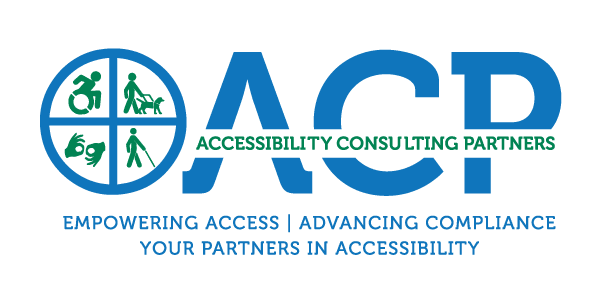Championing Accessibility: Nick Kelley’s Journey in Accessibility Consulting
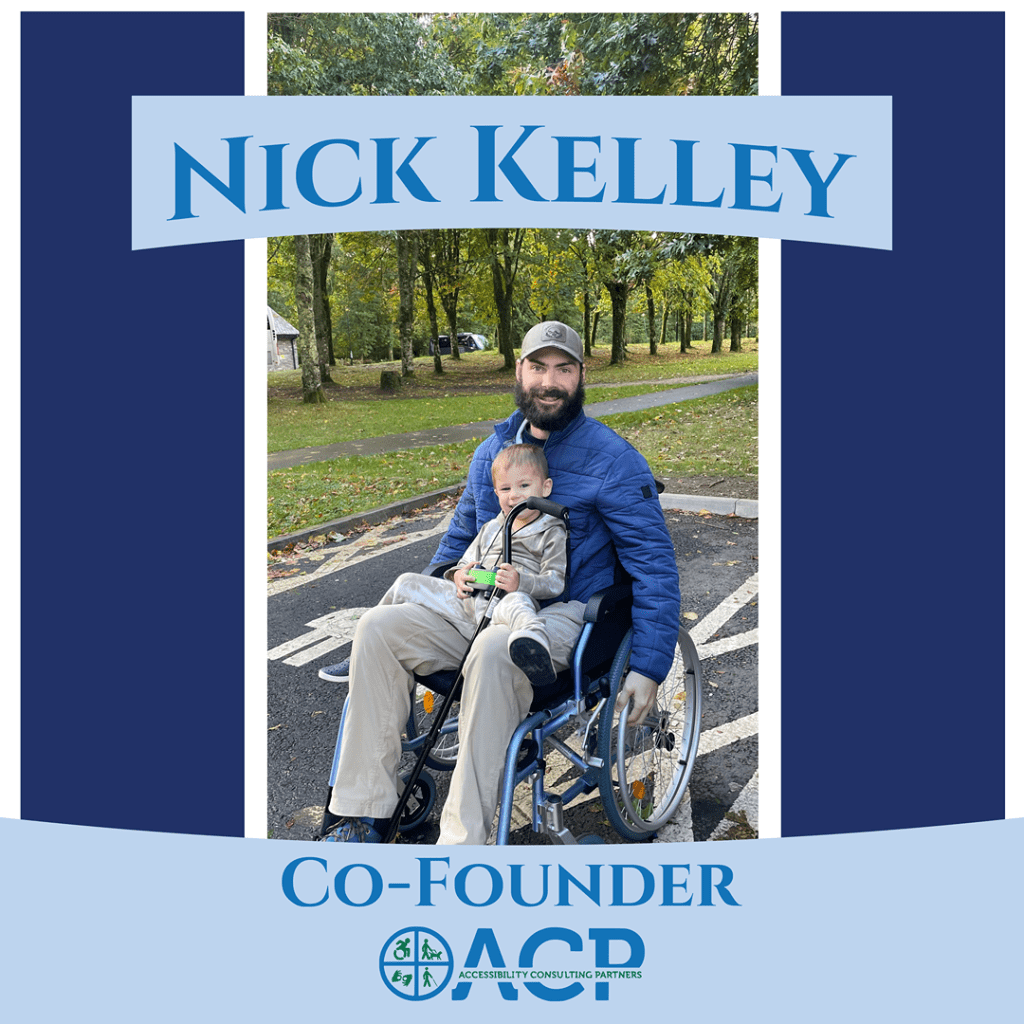
Nick Kelley brings nearly a decade of experience in accessibility consulting, with a strong background in managing projects that range from small private entities (Title III) to large-scale government agencies (Title II). As co-owner of Accessibility Consulting Partners, Inc. (ACP), Nick specializes in ADA compliance audits, facility assessments, Self-Evaluation and Transition Plans, and Public Right-of-Way (PROW) audits. His extensive hands-on experience in the field, combined with his expertise in geospatial science and ADA standards, allows him to provide practical, integrable solutions for clients seeking to meet accessibility standards.
With certifications as a Registered Accessibility Specialist (RAS) and ADA Coordinator (ADAC), Nick uses his geospatial expertise to create detailed maps and data that ensure accessibility improvements across various industries. His commitment to accessibility is both professional and personal, as he lives with a neuromuscular disease, further motivating his dedication to breaking down barriers for individuals with disabilities.
How SETPs Benefit Municipalities
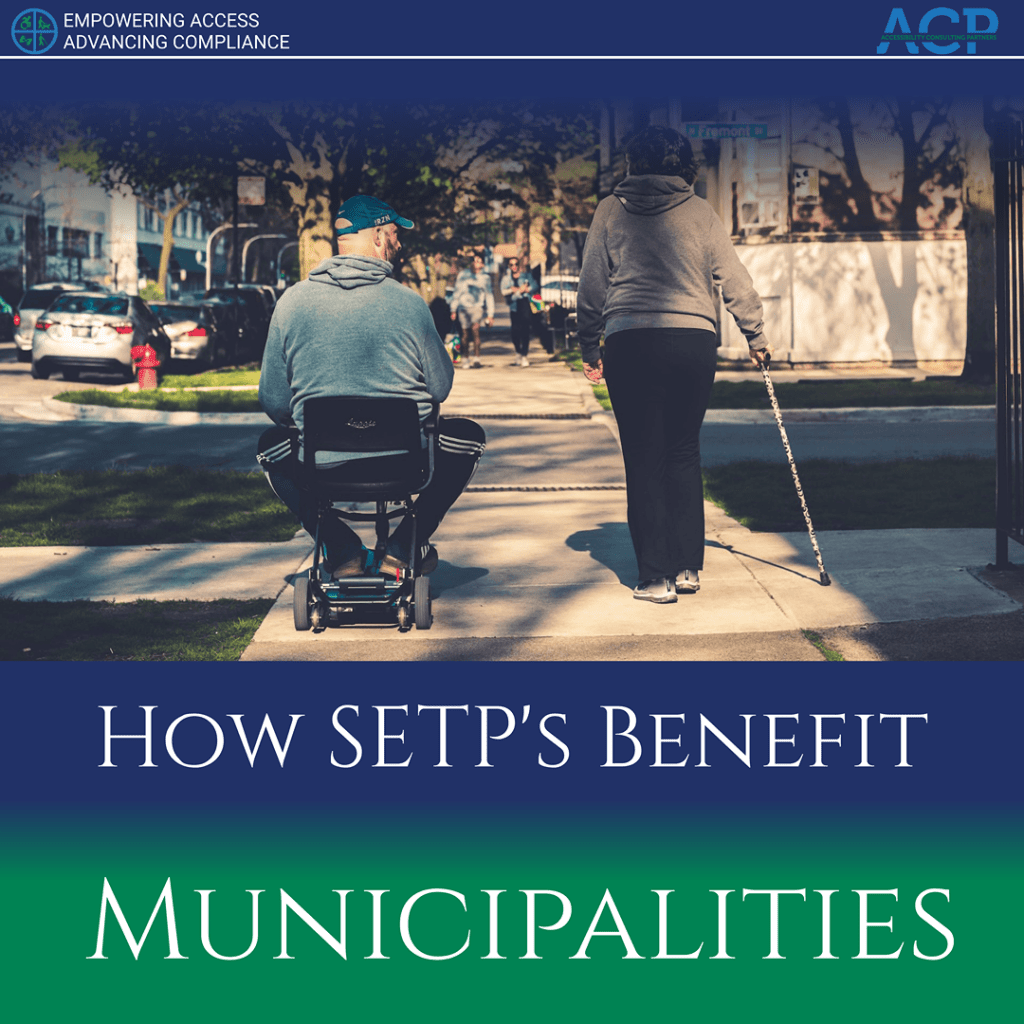
Self-evaluation and Transition Plans (SETPs) are essential for municipalities, enhancing compliance with the ADA while significantly improving community accessibility. By identifying and addressing barriers, SETPs ensure equal access to public spaces for all residents, fostering inclusion and participation in civic life.
They also enhance public services, improve staff awareness of ADA requirements, and bolster the municipality’s reputation, attracting residents and businesses. Ultimately, SETPs promote a thriving, inclusive community where everyone can succeed.
Responsibility vs. Power Struggles: Navigating the Challenges of ADA Compliance
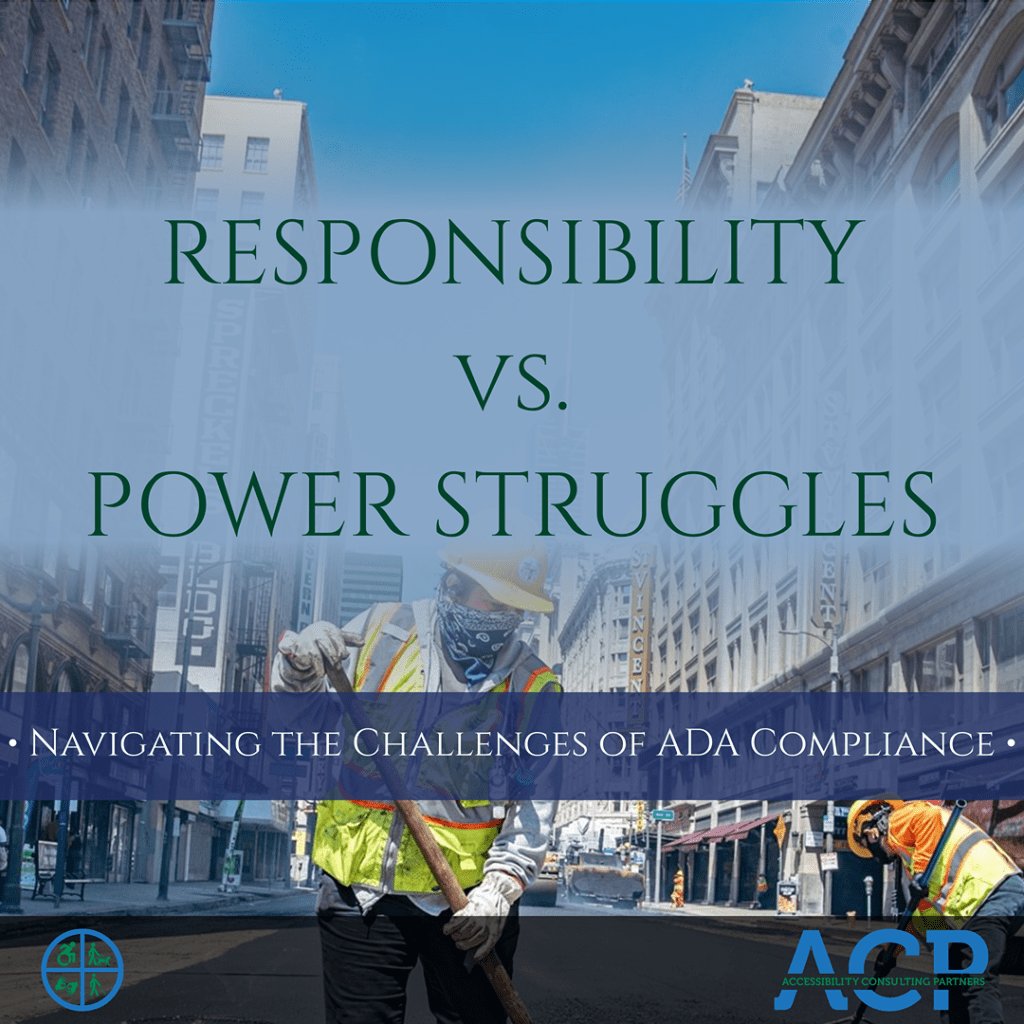
ADA Coordinators (ADACs) hold the crucial responsibility of ensuring organizations adhere to the Americans with Disabilities Act (ADA) standards. They oversee accessibility strategies, manage accommodation requests, and advocate for inclusivity. However, ADACs often face a significant challenge: they are tasked with immense responsibility without the corresponding authority to implement changes. This imbalance can lead to power struggles, as ADACs may identify issues but lack the decision-making power or budget approval to address them. Building collaborative relationships with key stakeholders and leveraging external resources are vital strategies ADACs can use to bridge the gap between responsibility and authority, ensuring effective ADA compliance throughout the organization.
ADAG & Service Animals
Service animals play a vital role in assisting individuals with disabilities, as outlined by the ADA. However, understanding where they are allowed, what qualifies as a service animal, and the rules surrounding them can be complex. This blog breaks down the basics of service animals, their rights, and guidelines to help clarify these often misunderstood regulations. Learn how to navigate service animal policies with ease and ensure compliance.
Stephen Hawking: Defying ALS and Advancing Science

Stephen Hawking, diagnosed with ALS at 21, defied medical expectations and made groundbreaking contributions to science, particularly in cosmology and black holes, until his death at 76. His life underscores the importance of the ADA and continued advancements in accessibility, highlighting how critical it is to support and empower those with disabilities.
ACP’s Accessibility: Tailored Solutions for ADA and Inclusion
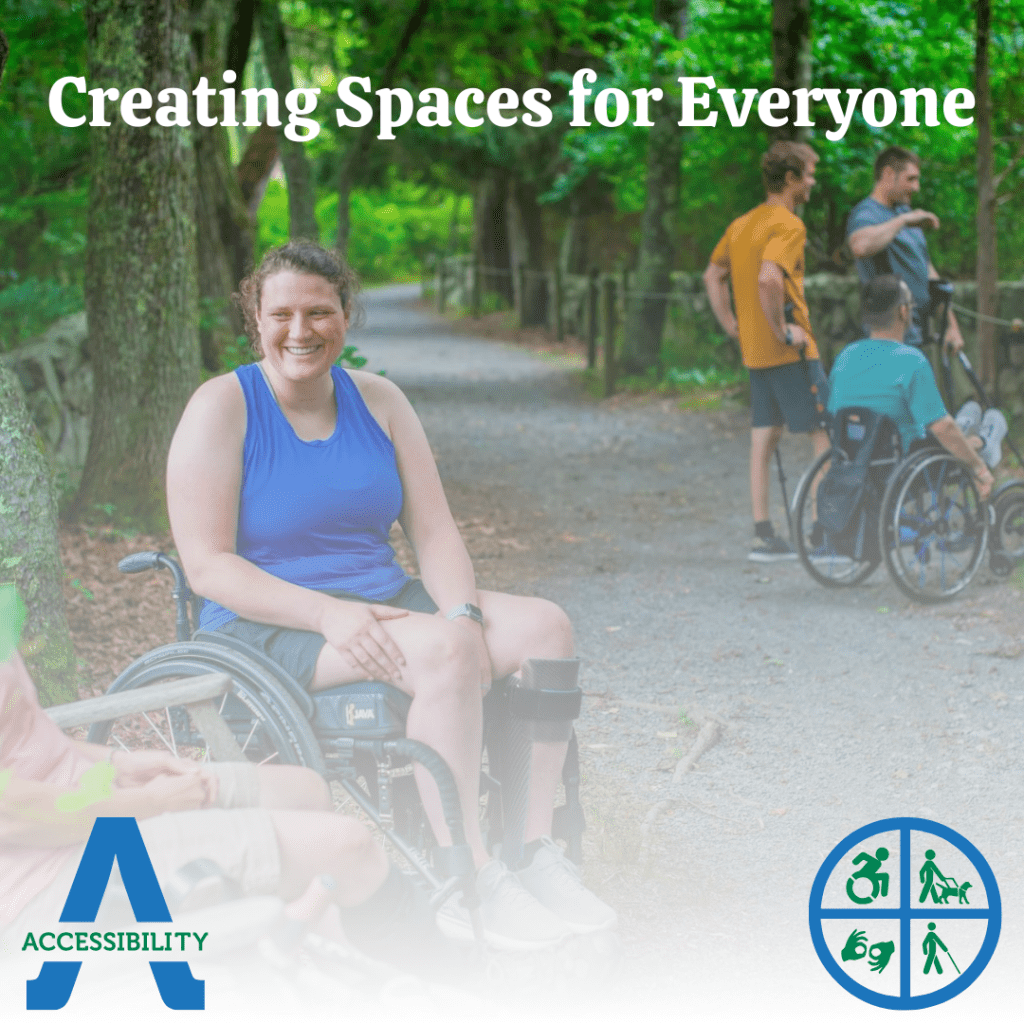
At ACP, we prioritize accessibility, offering ADA Compliance Assessments and Inclusive Design Consulting to create spaces where everyone can thrive.
Self-Evaluation & Transition Plans
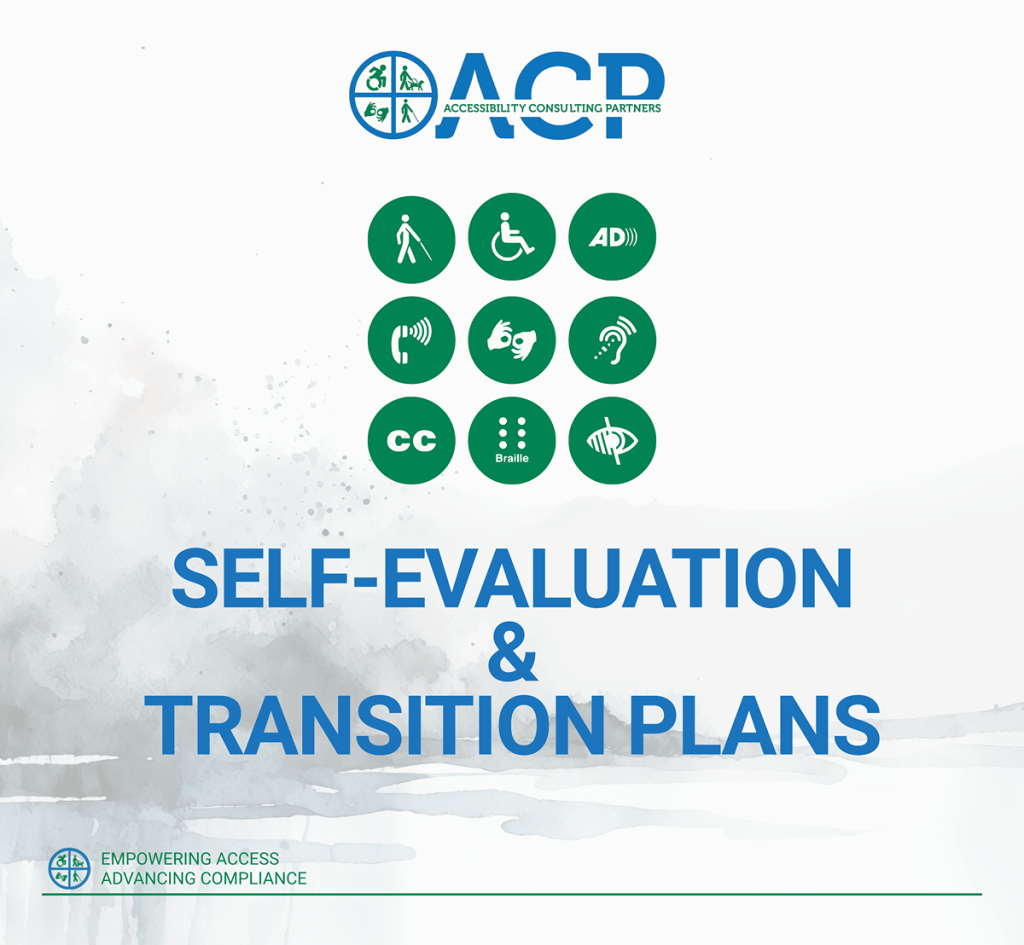
Self-Evaluation Transition Plans (SETPs) are crucial for municipalities to ensure ADA compliance and promote inclusive environments by identifying and addressing accessibility barriers. ACP specializes in helping develop effective SETPs through detailed assessments, community engagement, and strategic planning.
